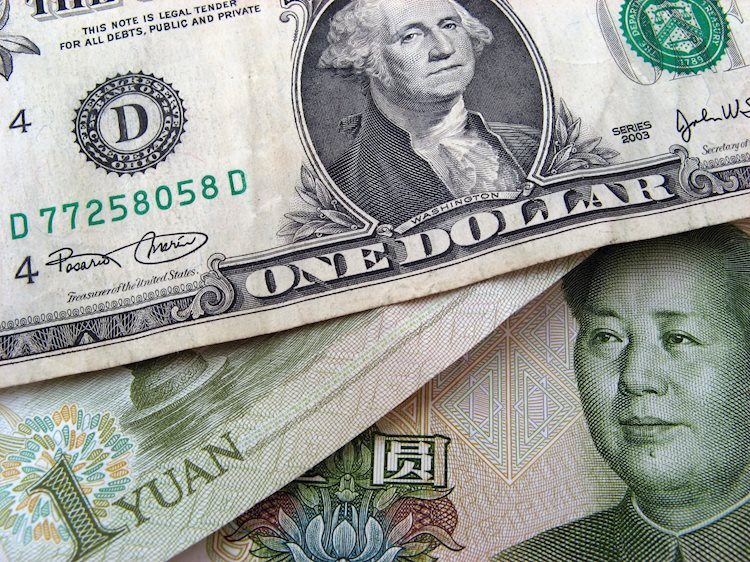Communist Party leaders recently gathered for a four-day meeting to discuss economic reform for the next five years, but the outcome was underwhelming. The communique released after the meeting contained familiar slogans without any new approaches or changes in thinking, according to Commerzbank’s FX analyst Volkmar Baur. While detailed documents on decisions made will be published soon, it is unlikely that they will offer solutions to revive private consumption, which has been weak in China.
The Chinese economy grew by 5% in the first half of the year, with a significant portion of this growth coming from foreign trade. This indicates that domestic demand only grew by 4.3%, reflecting persistently low inflation and falling government bond yields. The weakness in the domestic economy has also put pressure on the Chinese Yuan (CNY), as the interest rate differential between Chinese and US Treasuries remains high. The upcoming interest rate cycle in the US may provide some relief for the CNY, but the overall outlook for the currency remains uncertain.
Without a strong domestic economy, China may continue to face challenges in boosting consumption and sustaining growth. The lack of new ideas or approaches in the recent Communist Party meeting suggests that the government may struggle to address these issues effectively. It will be crucial for policymakers to prioritize measures that support domestic demand and encourage private consumption in the coming years to ensure sustainable economic growth.
The persistently weak domestic demand in China has wider implications for the global economy, as it affects inflation, government bond yields, and currency values. As the world’s second-largest economy, China’s economic performance has a significant impact on global markets. If domestic demand remains subdued, it could have ripple effects on other economies and trade relations, making it essential for China to address these challenges promptly and effectively.
The lack of significant changes or new approaches in the recent Communist Party meeting highlights the continued focus on traditional slogans and policies in China. While detailed documents on the decisions made during the meeting will be released shortly, it is essential for policymakers to consider innovative strategies to address the country’s economic challenges. By prioritizing measures that support domestic demand and encourage private consumption, China can work towards sustainable and inclusive growth in the coming years.
In conclusion, the recent Communist Party meeting in China did not yield any groundbreaking changes or new approaches to economic reform. With persistently weak domestic demand and challenges in boosting consumption, policymakers must prioritize measures that support sustainable growth and address the country’s economic challenges effectively. By focusing on innovative strategies and solutions, China can overcome current hurdles and work towards a stronger and more resilient economy in the future.











